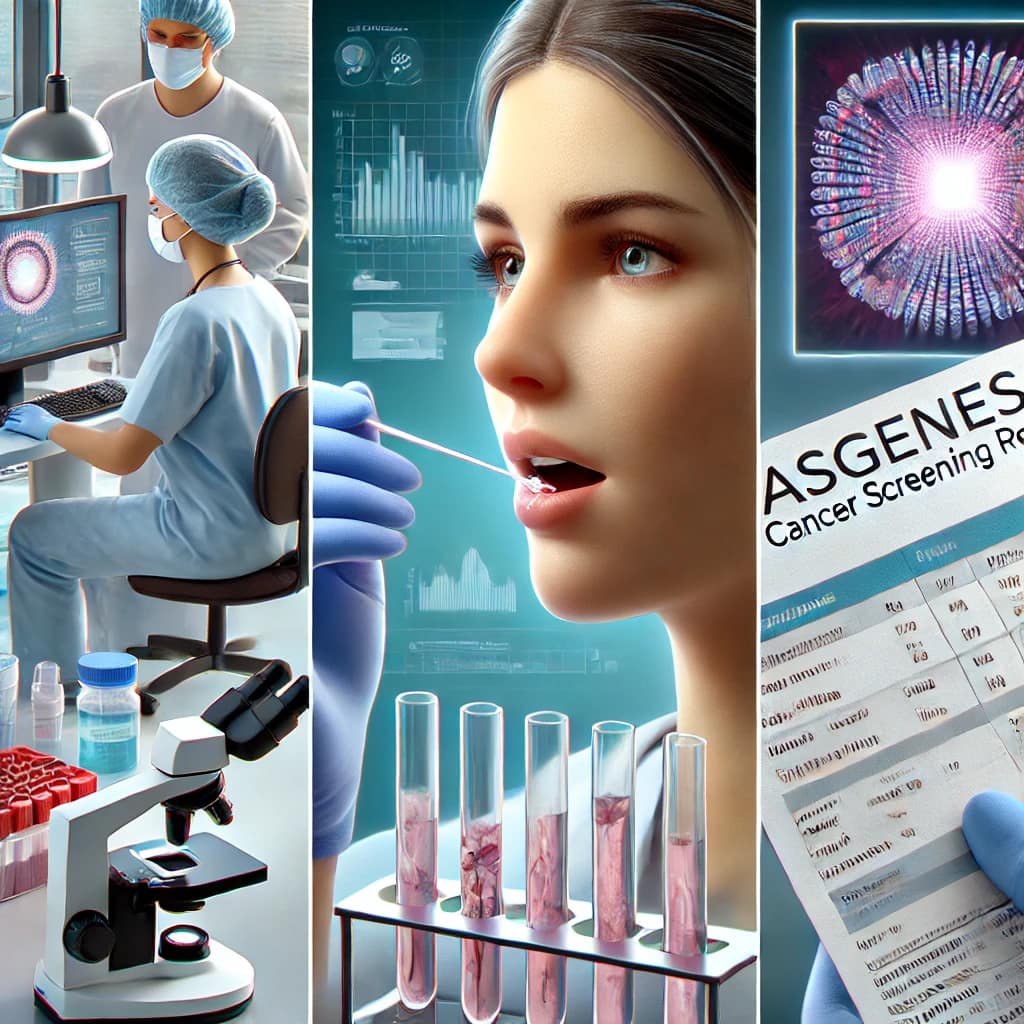ABOUT US
Early Detect and prevent Cancer
At ASGenes, we are pioneering advancements in cancer research and diagnostics. Our mission is to revolutionize cancer care through innovative biomarker testing solutions that enable early detection, prevention, and personalized treatment. With over 13 years of dedicated research and a team of more than 100 scientists, we have developed cutting-edge technology to help patients and physicians stay ahead in the fight against cancer.
OUR VISION
We strive for a world where undiagnosed cancer no longer devastates lives. By bridging the gap between advanced diagnostics and accessible healthcare, AsGenes is leading a revolution in cancer care.

WHAT IS BIOMARKER TESTING?
Biomarker testing identifies genes, proteins, and other substances (biomarkers) that reveal critical information about cancer. Each cancer has a unique biomarker profile, influencing treatment decisions. By leveraging these insights, we aim to:
- Diagnose cancer earlier: Early detection greatly enhances the chances of successful treatment and long-term survival.
- Monitor progression: Biomarker tracking enables dynamic treatment adjustments, ensuring optimal care.
- Personalize treatment for better outcomes: Customized therapies based on individual biomarker profiles maximize effectiveness while minimizing side effects.
Historically, biomarker testing was available only to cancer patients. Today, technological advancements allow proactive detection and diagnosis even before symptoms appear. Popular biomarker tests, such as BRCA1 and BRCA2, have set the stage for identifying genetic risks linked to cancers like breast and ovarian.
Breakthrough in Genetic Analysis: AsGenes
Our groundbreaking innovation, ASG Analysis (Autoimmune Sequence Genes), represents a significant leap forward in biomarker testing. This simple, non-invasive oral swab test detects mutations in 17 critical genes linked to cancer. These genes undergo 74 distinct mutations, identifiable in DNA years before symptoms arise, underscoring the pivotal role of early detection. ASG Analysis provides:
- Predictions of future cancer risks
- Insights into the hereditary transmission of cancer genes
- Opportunities for early intervention and improved prognosis
Why ASG Analysis Matters
Cancer claims 10 million lives globally each year, with late diagnosis being the primary cause of high mortality rates. For example, breast cancer—responsible for over 2.3 million new cases annually—often remains undetected until advanced stages, significantly reducing survival rates. In India alone, more than a million lives are lost to cancer annually. Our ASG Analysis empowers physicians to:
- Detect cancer risks early
- Develop effective preventive strategies
- Treat or reverse cancer proactively
The Science Behind Our Success
The discovery of Tumor Necrosis Factor (TNF) in the 1970s marked a turning point in cancer research. Building on this foundation, we have explored the TNF superfamily’s roles in inflammation, apoptosis, and carcinogenicity to develop ASG Analysis. This test reflects our unwavering commitment to harnessing science for transformative healthcare solutions.
